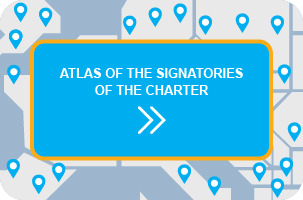Article 26 – Mobility and Transport
1. The Signatory recognizes that mobility and access to means of transport are essential conditions for women and men to be able to exercise many of their rights, tasks and activities, including access to work, education, culture and essential services. It also recognizes that the sustainability and success of a municipality or region depends to a significant degree on the development of an effective, high quality transport infrastructure and public transport service.
2. The Signatory further recognizes that women and men often have, in practice, different needs, as well as patterns of usage, in relation to mobility and transport, based on factors such as income, caring responsibilities or hours of work, and that consequently, women frequently form a greater proportion of users of public transport than men.
3. The Signatory therefore commits itself:
a) to take into account the relevant mobility needs, and the patterns of transport usage, of women and men respectively, including those from urban and rural communities;
b) to ensure that the transport services available to citizens in the area of the authority assist in meeting the specific as well as common needs of women and men, and in realising the real equality of women and men in local life.
4. The Signatory further commits itself to promote the progressive improvement of the public transport services in and for its area, including intermodal connections, in order to address the specific and common needs of women and men for regular, affordable, safe and accessible transport, and to contribute to its sustainable development.















